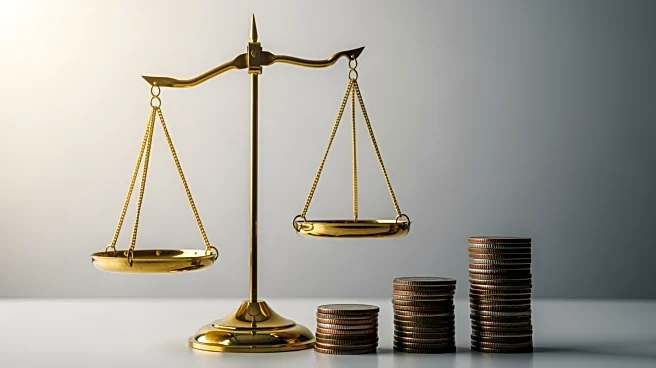What's Happening?
The Supreme Court of the United States is currently reviewing the constitutionality of tariffs imposed during President Trump's administration under the International Emergency Economic Powers Act. These tariffs have generated nearly $90 billion in revenue
for the federal government. The court's skepticism, expressed by both conservative and liberal justices, suggests a potential ruling against the Trump administration's tariffs. If the court decides to overturn these tariffs, businesses may be eligible for refunds, although the process is expected to be complex and lengthy. The uncertainty surrounding the tariffs has impacted businesses' ability to plan investments and operations.
Why It's Important?
The potential refund of tariffs could have significant financial implications for businesses that have been affected by these levies. A ruling against the tariffs may lead to substantial refunds, which could provide relief to importers and stimulate economic activity. However, the complexity of the refund process may pose challenges for businesses seeking reimbursement. Additionally, investment banks have been offering deals to importers to sell their potential refund stakes at a discount, indicating the high stakes involved. The outcome of this case could also influence future trade policies and the use of emergency powers in imposing tariffs.
What's Next?
If the Supreme Court rules against the Trump administration, businesses may need to navigate a complicated refund process, potentially involving appeals to lower courts. The federal government may implement a streamlined or automated process for refunds, but automatic blanket refunds are unlikely. Importers are advised to seek liquidation extensions or file protests to facilitate potential refunds. The decision could take months, and businesses are advised to monitor their importations and tariff payments closely.
Beyond the Headlines
The case highlights the broader implications of using emergency powers to impose tariffs and the legal challenges that can arise from such actions. It underscores the importance of judicial oversight in trade policy and the potential impact on international trade relations. The involvement of investment banks in brokering deals for tariff refund stakes also reflects the financial industry's role in navigating trade disputes.

















